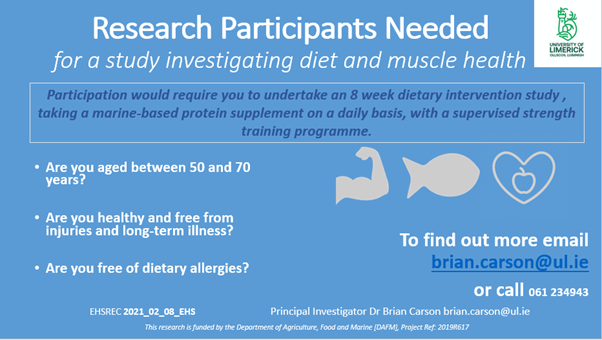Everyone has heard the famous saying “you are what you eat”, but never expected it to be so literal. This statement was introduced by the American nutritionist Victor Lindahr in the 1930s and gained popularity along the years as a slogan for healthy eating. In fact, nutrition is universally acknowledged as a vital component of health and intrinsically related to disease development. Optimal nutrition supports health throughout the life course, but can have particular relevance for aging populations.
Aging results in a progressive loss of muscle mass, function and strength called sarcopenia, which is Greek for ‘poverty of flesh’. Today, sarcopenia is a matter of immense public concern as its prevalence continues to rise, as a result of increasing aging populations worldwide. Sarcopenia has been associated with reduced quality of life, disease progression, clinical complications, increased hospitalisations, and even death. But the good news is that small lifestyle modifications (optimising daily protein ingestion associated with appropriate strength exercise) can stop, and in some instances reverse, sarcopenia.
Researchers at PESS, UL have spent a decade investigating lifestyle approaches to offset age related muscle declines and have published on protein type (dairy and plant), timing and distribution (supplementing deficient meals throughout the day) with and without strength training to determine optimal lifestyle interventions. We are now turning our attention to sustainable sources of protein in pursuit of the same goal.
In modern society, sustainability seems to be the word-of-the-day among both corporates and consumers. This has made us rethink ways we can wisely make use of natural resources. Ireland, an island nation, has a vast and diverse but under-utilised marine resource. Among a variety of protein sources (meat, dairy, eggs, beans, lentils, etc.), fish protein has proven to be a sustainable, high-quality protein ingredient with a fine balance of constituent amino acids, especially leucine, an important player for building muscle. On top of that, resistance exercise can walk hand by hand with protein in optimizing muscle and strength gains in older people.
Our current research project, the SarcoBlu Project, is using a sustainable source of protein from blue whiting fish, along with a supervised exercise programme using resistance band exercises for the management of sarcopenia in older adults. The SarcoBlu Project consists of 8-week intervention including the ingestion of fish protein supplement twice a day, during breakfast and lunch time, with a 35-min group exercise session with resistance bands done at the University Limerick once a week and the other two sessions at home. Before and after the nutrition/exercise programme, participants will go through a medical screening with a blood sample collection, answer questionnaires and dietary records, and undertake physical function assessment involving in day-to-day life activities, like rising from a chair and walking for 6 minutes. We are currently recruiting participants and are inviting expressions of interest so that we can provide additional information and facilitate an informed decision. So, if you are between 50-70 years, healthy, free from injuries and dietary allergies, you are more than welcome to participate in our project.
For more information about the SarcoBlu Project please contact:
- Guilherme Fonseca: guilherme.fonseca@ul.ie
- Catherine Norton: catherine.norton@ul.ie
- Brian Carson: brian.carson@ul.ie

